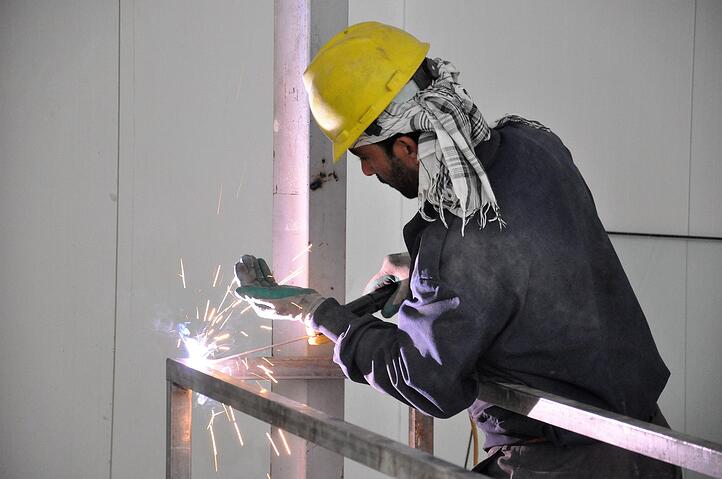
Welders have an important job to do, and unfortunately that job often puts them at risk in a variety of ways. With that in mind, all welders should be aware of the dangers surrounding them on a daily basis. Consider the following factors that increase the likelihood of occupational injuries.
Skin Exposure

Welders are constantly working with heated material, so they rely on personal protective equipment, such as flame resistant clothing, to guard against burns. Accidental exposure, such as forgetting to roll down a shirt sleeve, can lead to painful burns.
Improper Eye Protection

A welder’s eyes require protection from various dangers, ranging from metal sparks to ultraviolet and infrared radiation. Helmets should be used to shield the eyes with a filter lens. Of course, while considering the lens shade, welders also have to be careful that their vision isn’t hindered.
Improper Ear Protection

As is the case with other workers in the industrial field, welders often work in noisy environments that put them at risk of hearing loss. Welding earmuffs not only help guard against unsafe decibel levels, but also potentially hazardous debris.
Workplace Fires

Sparks and spatter can launch across a work area, causing unexpected fires if flammable material is nearby. Items like paint, wood, and cardboard should be kept well out of range. In an occupation like this, a fire extinguisher is a must-have tool, and workers should always have an established escape route from the building as well.
Electrical Shocks

Most electric shocks are secondary voltage shocks, which range from 20 to 100 volts. However, particularly severe shocks, called primary shocks, can reach up to 600 volts. Note that when it comes to alternating current, 50 volts is enough to cause a fatal incident. Direct current is less hazardous, but it’s still wise to avoid a shock altogether. Dry insulation should be used whenever necessary as a safeguard against electricity.
Gas Exposure

Exposure to metals in a gaseous state is another hazard welders will face. This increases the likelihood of damage to the respiratory system. For example, exposure to chrome can increase the risk of lung cancer. Welding workplaces should be properly ventilated to protect workers.
Wise welders not only adhere to workplace safety rules, they also keep contact information for a workers’ comp lawyer handy in case of an accident.
Sources:
https://www.ncbi.nlm.nih.gov/pmc/articles/PMC4292694/
http://www.lincolnelectric.com/en-us/education-center/welding-safety/pages/electric-shock-faqs.aspx

